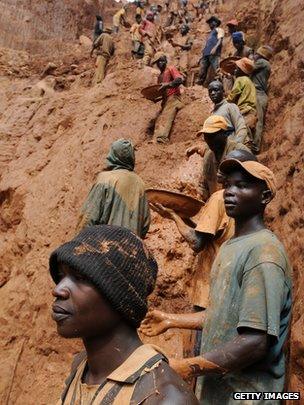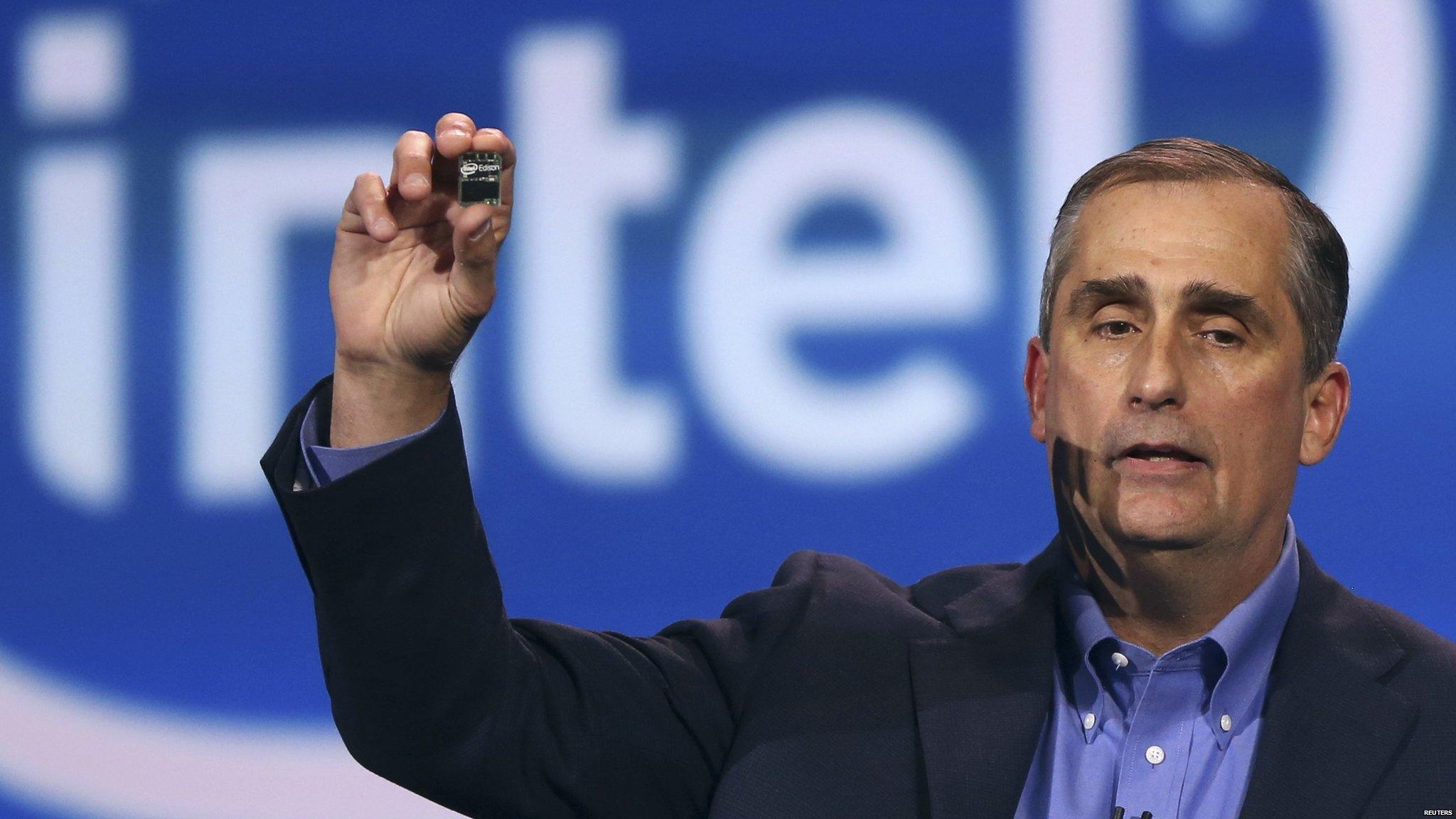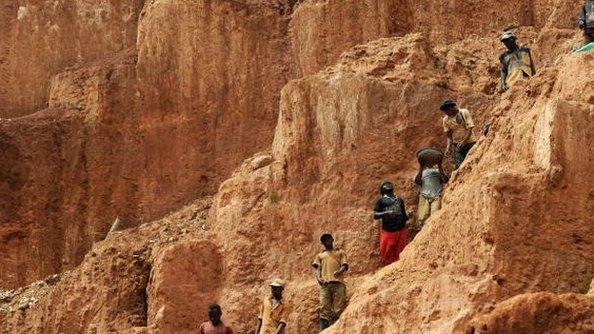'Conflict minerals' deadline looms for technology firms
- Published

Companies have had to audit every step of their supply chain, including in war-torn countries
Companies manufacturing products that use "conflict minerals" must submit a plan to deal with the problem to US regulators by Monday.
The term applies to raw materials, such as gold, tungsten, tantalum and tin, gathered by miners controlled by violent militia groups.
The US Securities and Exchange Commission (SEC) has asked firms to audit their entire supply chains.
But campaign groups are unhappy and say more pressure needs to be applied.
All of the materials are used widely in electronics products and the deadline applies to firms listed in the US.
Some companies, such as Apple, Intel and HP, have submitted their audits ahead of the deadline - but many others are expected to miss the cut off.
The SEC would not elaborate on possible repercussions for those who did not comply.
Campaigners have voiced concern about the quality of some audits already submitted.
"We are disappointed with quite a lot of the reports we have seen so far," said Emily Norton from the Global Witness group.
"We recognise some companies have made a huge amount of progress, but it's a question of variation... in the standard of reporting.
"Some companies are just not providing detail on the management system they should have in place, or the steps they are taking to identify risk, to manage risk, and to avoid the risk that they are financing armed groups through their supply chain."
'Didn't care'
Firms have been asked to carry out detailed examinations of their supply chain - in some cases this has involved sending staff to affected areas, including volatile countries such as the Democratic Republic of Congo (DRC).
"We have had two people from Intel go into the DRC," explained Carolyn Duran, who has led the chip-maker's efforts to reduce use of "conflict minerals".
"Many [suppliers] that we found just didn't know and weren't interested - they were just looking for the cheapest source of mineral that they could, and not caring about where it came from."
Intel is part of a set of companies, external involved in the Conflict-Free Sourcing Initiative (CFSI), a not-for-profit organisation offering guidance to firms wanting to meet the requirements.
"Some companies are really committed to this; others are doing the bare minimum because the SEC told them to," said Julie Schindall from the Electronic Industry Citizenship Coalition, the parent organisation for CFSI.
"[But] we must not discount the tremendous challenges companies face in tracing materials in their products this far back in their supply chains," she added.
"These supply chains are global and complex, and have hundreds - sometimes thousands - of players in them.
"Some of our member companies are seven layers or more apart from these mines in the DRC where we're concerned that the trade in minerals is financing conflict."
Backed down
Apple is one of the companies that has filed its audit, and made it public, ahead of the deadline.
It reported that 21 smelters and refiners in its supply chain originated from mines in DR Congo and adjoining countries. Seventeen of them had been put through third-party audits to track the sources of their materials, but four were yet to do so. Any supplier that refused to cooperate with the audit would no longer be used, Apple said.
While pulling out of the region altogether would eradicate a lot of "conflict minerals" in products, the CFSI stressed that to do so would severely damage the economy in central Africa, perhaps creating more volatility and violence.
Business groups applied pressure to the SEC to extend the deadline, but this was denied by an appeals court last month.
However, the SEC did back down on plans to force companies to disclose publicly whether a product was conflict-free.
Ms Norton from Global Witness said tough enactment of the legislation was necessary to ensure companies did not simply ignore the issue.
"Voluntary schemes simply don't work to change the ways that companies behave and source minerals," she said.
"The conflict in DR Congo has been going on for 15 years. Mineral trade has unfortunately fuelled that conflict, and it has fuelled human-rights abuses."
Follow Dave Lee on Twitter @DaveLeeBBC, external
- Published7 January 2014

- Published31 January 2014

- Published13 February 2014

- Published25 July 2013
